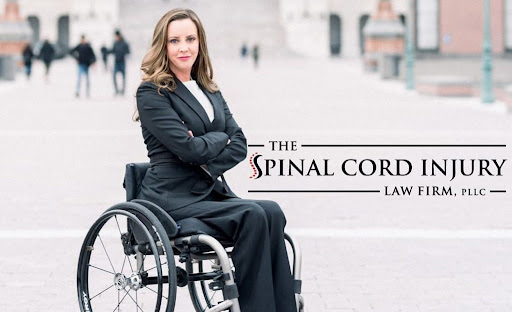Spinal Cord Injury Attorney: Legal Support and Compensation
If you or a loved one has suffered a spinal cord injury, a skilled spinal cord injury attorney can help you navigate the legal complexities, secure fair compensation, and focus on recovery. Learn how legal representation can make a difference.
Introduction
Suffering a spinal cord injury (SCI) is a life-altering event that can impact every aspect of daily living. Whether resulting from a motor vehicle accident, workplace incident, or medical malpractice, the consequences can be profound and long-lasting. In such challenging times, a spinal cord injury attorney becomes an invaluable ally, guiding you through the legal process and advocating for the compensation you deserve.
This article delves into the role of a spinal cord injury attorney, the types of spinal cord injuries, common causes, and how legal representation can make a significant difference in your recovery journey.
What Is a Spinal Cord Injury Attorney?
A spinal cord injury attorney is a legal professional specializing in representing individuals who have sustained injuries to their spinal cord. These attorneys are well-versed in the complexities of personal injury law, particularly concerning catastrophic injuries like SCIs. Their primary goal is to secure fair compensation for victims, covering medical expenses, rehabilitation costs, lost wages, pain and suffering, and other related damages.
Understanding Spinal Cord Injuries
Types of Spinal Cord Injuries
Spinal cord injuries are typically classified into two categories:
- Complete SCI: Complete loss of motor and sensory function below the level of injury.
- Incomplete SCI: Partial loss of function, with some sensation or movement preserved below the injury site.
The severity and impact of an SCI depend on the location and extent of the damage:
- Cervical (Neck) Injuries: Can result in quadriplegia (paralysis of all four limbs).
- Thoracic (Mid-Back) Injuries: Often lead to paraplegia (paralysis of the lower body).
- Lumbar and Sacral (Lower Back) Injuries: May affect the lower limbs and bladder control.
Common Symptoms
Symptoms of spinal cord injuries vary but may include:
- Loss of sensation or movement below the injury site
- Difficulty breathing or coughing
- Loss of bladder or bowel control
- Chronic pain or spasms
- Sexual dysfunction
- Impaired reflexes
Common Causes of Spinal Cord Injuries
Spinal cord injuries can result from various incidents, including:
- Motor Vehicle Accidents: Car, truck, motorcycle, and bicycle accidents are leading causes.
- Falls: Particularly among older adults, falls can lead to significant spinal injuries.
- Violence: Gunshot wounds, stabbings, and other violent acts can damage the spinal cord.
- Sports Injuries: High-impact sports or accidents during recreational activities.
- Medical Malpractice: Errors during surgery or misdiagnosis leading to spinal damage.
- Workplace Accidents: Construction site incidents, machinery malfunctions, or falls.
The Role of a Spinal Cord Injury Attorney
A spinal cord injury attorney plays a crucial role in:
1. Investigating the Incident
Attorneys conduct thorough investigations to determine the cause of the injury and identify responsible parties. This may involve reviewing medical records, accident reports, and gathering witness testimonies.
2. Establishing Liability
Proving negligence is essential in SCI cases. Attorneys work to establish that another party’s actions or inactions directly caused the injury.
3. Calculating Damages
Accurate assessment of damages is vital. Attorneys consider medical bills, future care costs, lost wages, and non-economic damages like pain and suffering.
4. Negotiating Settlements
Experienced attorneys negotiate with insurance companies to secure fair settlements, ensuring clients receive compensation that reflects the full extent of their injuries.
5. Representing in Court
If a fair settlement isn’t reached, attorneys are prepared to take the case to trial, presenting evidence and advocating for the client’s rights.
Why You Need a Spinal Cord Injury Attorney
Expertise in Complex Cases
SCIs often involve intricate medical and legal issues. An attorney specializing in these cases has the knowledge and resources to navigate these complexities effectively.
Maximizing Compensation
Attorneys are skilled in identifying all potential sources of compensation, including medical expenses, lost income, and pain and suffering, ensuring clients receive the maximum possible recovery.
Handling Insurance Companies
Dealing with insurance companies can be challenging. Attorneys handle all communications, protecting clients from lowball offers and ensuring their interests are prioritized.
Providing Emotional Support
Beyond legal representation, attorneys offer emotional support, guiding clients through the legal process and helping them access necessary resources.
How to Choose the Right Spinal Cord Injury Attorney
When selecting an attorney, consider:
- Experience: Look for a track record of handling spinal cord injury cases successfully.
- Reputation: Research client reviews and testimonials to gauge satisfaction.
- Communication: Choose an attorney who communicates clearly and keeps you informed.
- Contingency Fees: Many attorneys work on a contingency fee basis, meaning they only get paid if you win your case.
Conclusion
Sustaining a spinal cord injury is a devastating experience that can alter the course of your life. However, with the right legal support, you can navigate the complexities of the legal system and secure the compensation necessary for your recovery and future well-being.
If you or a loved one has suffered a spinal cord injury, don’t hesitate to reach out to a qualified spinal cord injury attorney. They can provide the expertise and advocacy needed to help you through this challenging time.
FAQs
What should I do immediately after a spinal cord injury?
Seek emergency medical attention immediately. Avoid moving the injured person unless necessary to prevent further harm. Call emergency services and wait for professional help.
How long do I have to file a lawsuit for a spinal cord injury?
The statute of limitations varies by jurisdiction. It’s crucial to consult with an attorney promptly to ensure you don’t miss any deadlines.
What types of compensation can I receive for a spinal cord injury?
Compensation may include medical expenses, rehabilitation costs, lost wages, pain and suffering, and loss of enjoyment of life.
Do I need an attorney if my injury was partially my fault?
Even if you share some responsibility, an attorney can help determine comparative fault and ensure you receive fair compensation.
How can a spinal cord injury attorney assist me beyond the courtroom?
Attorneys can connect you with medical professionals, rehabilitation centers, and support groups, providing comprehensive support throughout your recovery journey.




